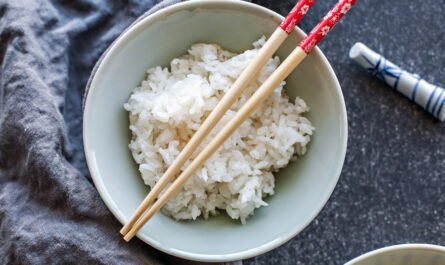Sushi is a beloved dish enjoyed by many around the world. However, for some, indulging in sushi can come with unexpected health risks. It’s essential to understand the allergy info for sushi rice to ensure a safe dining experience. This article aims to provide comprehensive insights into the potential allergens present in sushi rice and what sushi lovers need to know.

Understanding Sushi Rice
Sushi rice, also known as shari or sushi-meshi, is a vital component of sushi. It is short-grain rice seasoned with a mixture of vinegar, sugar, and salt. This combination gives sushi rice its distinct flavor and stickiness, making it ideal for sushi rolls and nigiri.
Ingredients in Sushi Rice
The primary ingredients in sushi rice include:
- Short-grain white rice
- Rice vinegar
- Sugar
- Salt
These ingredients are generally safe for most people, but individuals with specific allergies need to be cautious.
Common Allergens in Sushi Rice
While plain sushi rice might seem harmless, certain components can trigger allergic reactions. Let’s explore these allergens:
Rice Allergy
Although rare, some individuals may have a rice allergy. Symptoms can include skin rashes, itching, and respiratory issues. If you suspect a rice allergy, consult a medical professional before consuming sushi.
Vinegar Sensitivity
Rice vinegar is a key ingredient in sushi rice. Some people may have a sensitivity to vinegar, leading to digestive discomfort or headaches. If you experience these symptoms, it might be best to avoid sushi rice.
Sugar and Salt Concerns
The sugar and salt used in seasoning sushi rice are usually in small amounts. However, those with specific dietary restrictions, such as diabetes or high blood pressure, should be mindful of their intake.
Cross-Contamination Risks
One significant concern for sushi lovers is cross-contamination. Sushi is often prepared in environments with various ingredients, including seafood, soy sauce, and other potential allergens. Ensure that sushi chefs are aware of any allergies to prevent cross-contact.
Gluten Contamination
While sushi rice itself is gluten-free, cross-contamination with gluten-containing ingredients can occur. For those with gluten sensitivities or celiac disease, it’s crucial to confirm that the sushi rice is prepared in a gluten-free environment. Learn more about gluten content.
Seafood Allergies
Sushi often contains seafood, a common allergen. If you have a seafood allergy, ensure that your sushi is prepared using separate utensils and surfaces to avoid cross-contact.
Precautions for Sushi Lovers
To enjoy sushi safely, consider the following precautions:
Communicate with the Chef
Always inform the sushi chef about any allergies or dietary restrictions. They can often accommodate your needs and prepare your sushi safely.
Opt for Allergy-Friendly Options
Some restaurants offer allergy-friendly sushi options. Look for sushi made with alternative grains or ingredients that do not trigger your allergies.
Prepare Sushi at Home
If you’re concerned about allergens, consider making sushi at home. This way, you have complete control over the ingredients and preparation methods. Check out these sushi rice recipes for inspiration.
Health Benefits of Sushi Rice
Despite potential allergens, sushi rice offers several health benefits:
Rich in Carbohydrates
Sushi rice is an excellent source of carbohydrates, providing the energy needed for daily activities.
Low in Fat
Sushi rice is naturally low in fat, making it a healthy choice for those watching their fat intake.
Contains Essential Vitamins
Sushi rice contains essential vitamins, including B vitamins, which are crucial for maintaining overall health.
Conclusion
Understanding the allergy info for sushi rice is crucial for sushi enthusiasts. By being aware of potential allergens and taking necessary precautions, you can enjoy sushi without compromising your health. Always communicate with the chef, opt for allergy-friendly options, and consider preparing sushi at home to ensure a safe and enjoyable dining experience.

FAQs
Can I eat sushi rice if I have a rice allergy?
If you have a rice allergy, it’s best to avoid sushi rice and consult a medical professional for advice.
Is sushi rice gluten-free?
Sushi rice is naturally gluten-free, but cross-contamination can occur. Ensure it’s prepared in a gluten-free environment.
What can I use as a substitute for sushi rice?
You can use alternative grains like quinoa or cauliflower rice as substitutes for sushi rice. Explore these rice varieties for more options.
This article contains affiliate links. We may earn a commission at no extra cost to you.



